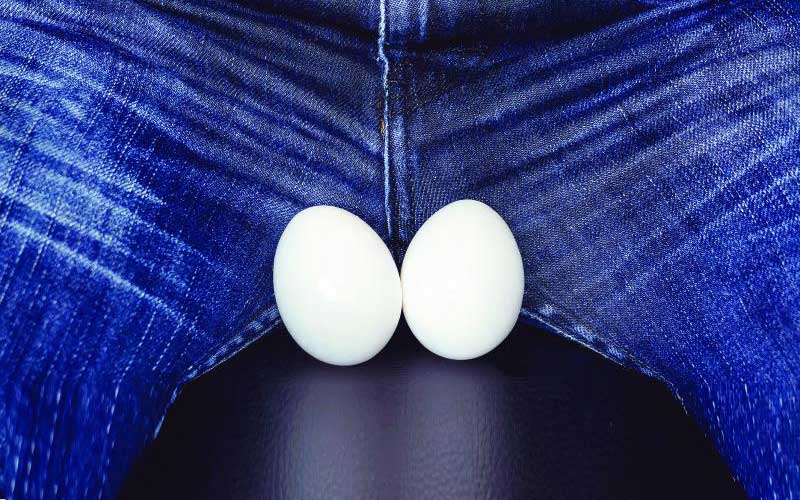A new study suggests testicles in men could harbour coronavirus, allowing it to stay longer in men.
The rationale is that coronavirus connects with cells that express the ACE2 protein in order to enter the body.
The ACE2 protein, or angiotensin converting enzyme 2, is found in the lungs, heart and intestines—and are also found in large quantities in the male testes.
Small amounts are found in ovarian tissue in women.
Statistics indicate that the coronavirus is more likely to severely affect men rather than women.
Just in the UK alone, men are dying from the virus at twice the rate of women.
A pilot study has indicated that while women took four days to clear the infection, men took 50 per cent longer, requiring six days.
Dr Aditi Shastri, an oncologist at Montefiore Medical Center in the Bronx, and her mother Jayanthi Shastri, a microbiologist at the Kasturba Hospital for Infectious Diseases in Mumbai, carried out the study.
In three families that took part in the study men also took longer than women to recover from coronavirus.
Those taking part in the study were aged from three to 75 years old, with an average age of 37.
The research has not been peer reviewed, and has been published on MedRxiv, a site that report new medical research that has yet to be evaluated and should not be used to guide clinical practice.
It is not the first time research has linked coronavirus to effects on male reproductive system.
Another report in early March made the warning that coronavirus could threaten male fertility, reports the Daily Mail.
It went viral on Chinese social media, but was subsequently withdrawn from the Chinese government’s website just hours after being uploaded, the paper reported.
Suggestions are that the report was pulled down because it is too early to make assumption on how the virus may affect fertility
Dr Rod Mitchell, an endocrinologist at The University of Edinburgh’s MRC Centre for Reproductive Health emphasised that any research linking the coronavirus with testicular health has been hypothetical.

 Join Daily Trust WhatsApp Community For Quick Access To News and Happenings Around You.
Join Daily Trust WhatsApp Community For Quick Access To News and Happenings Around You.


